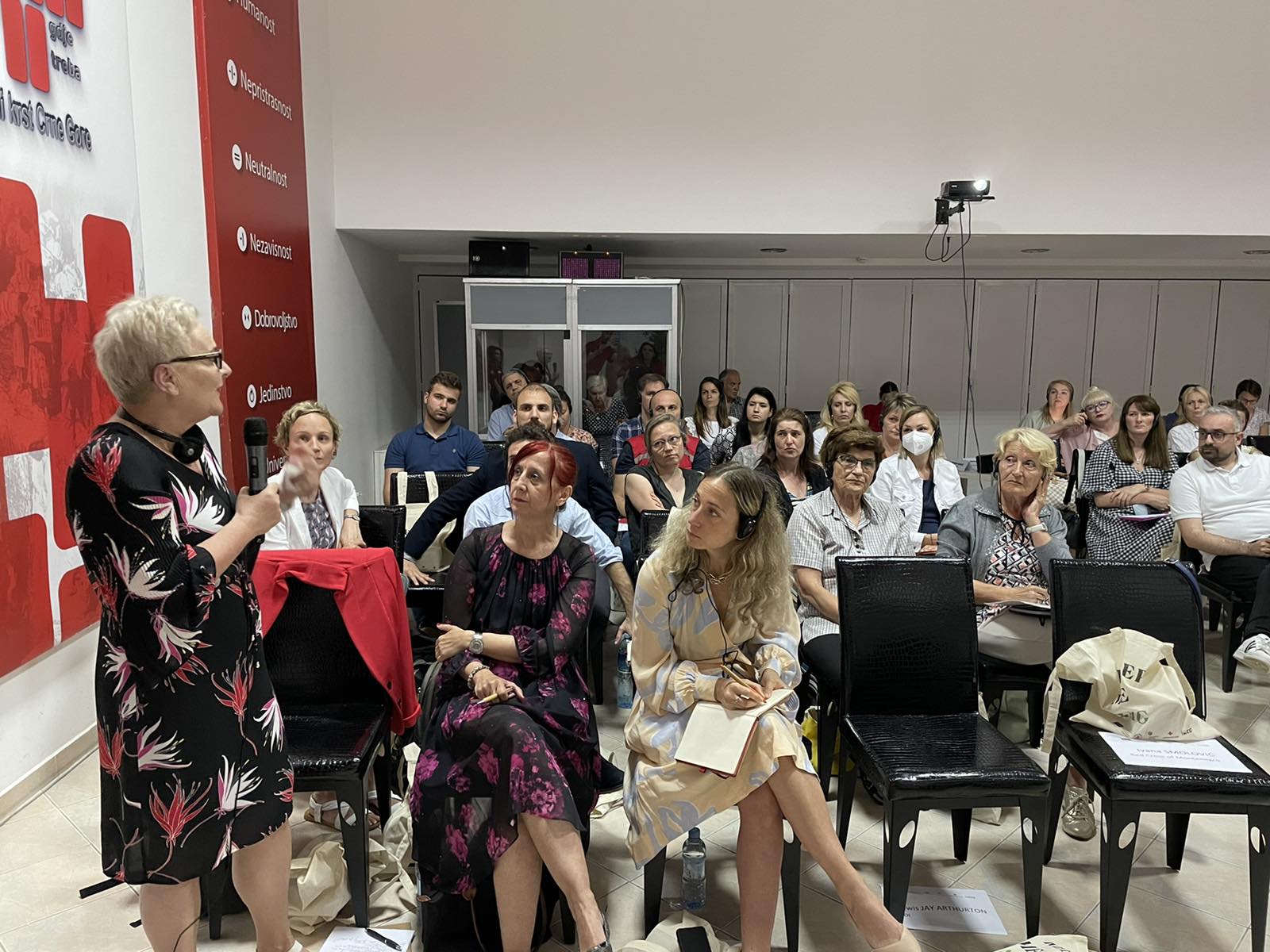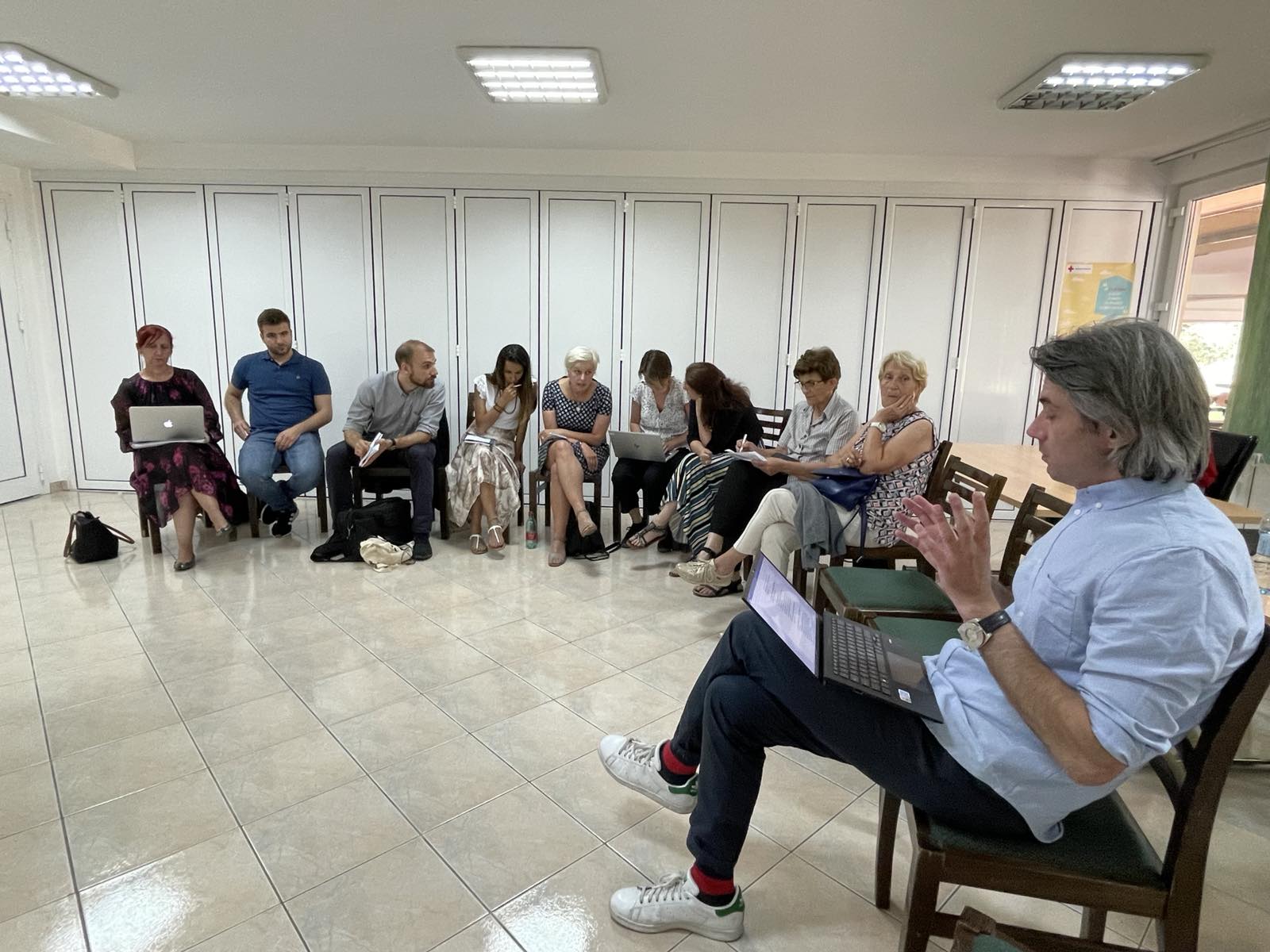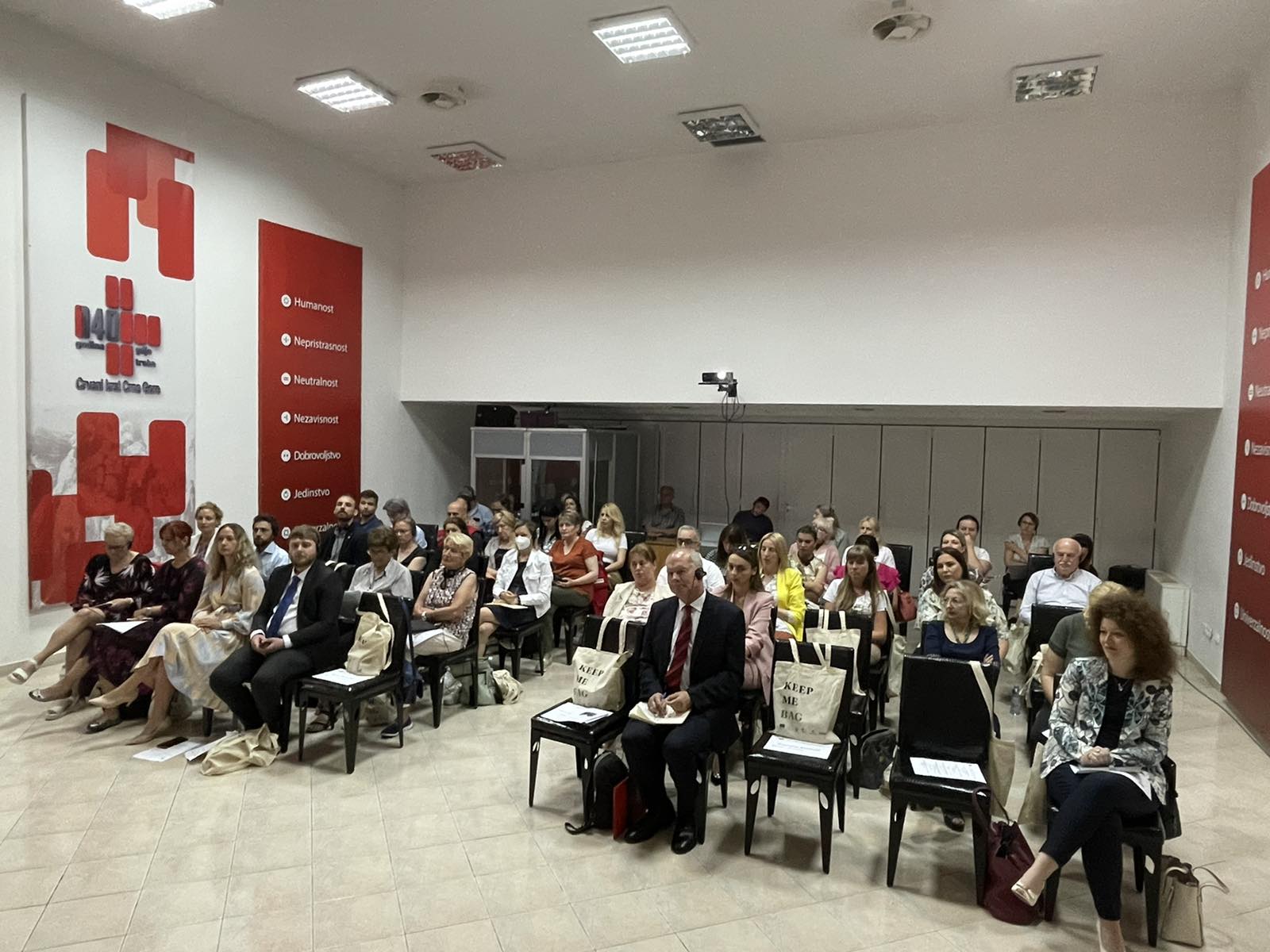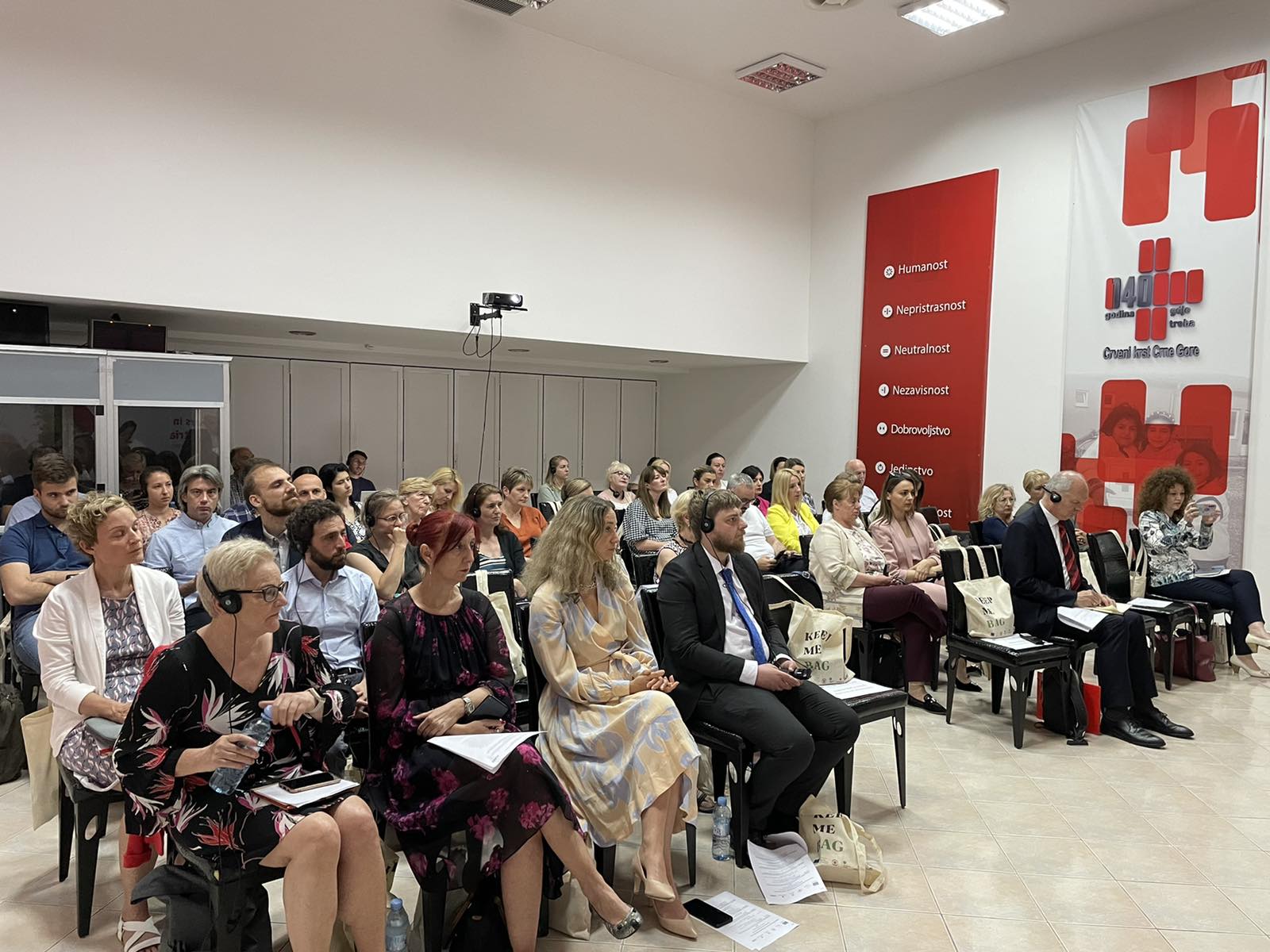Conference “Empowering Informal Carers in Montenegro, Serbia and Austria – Approaches and Good Practices for Informal Carers” at the Red Cross of Montenegro
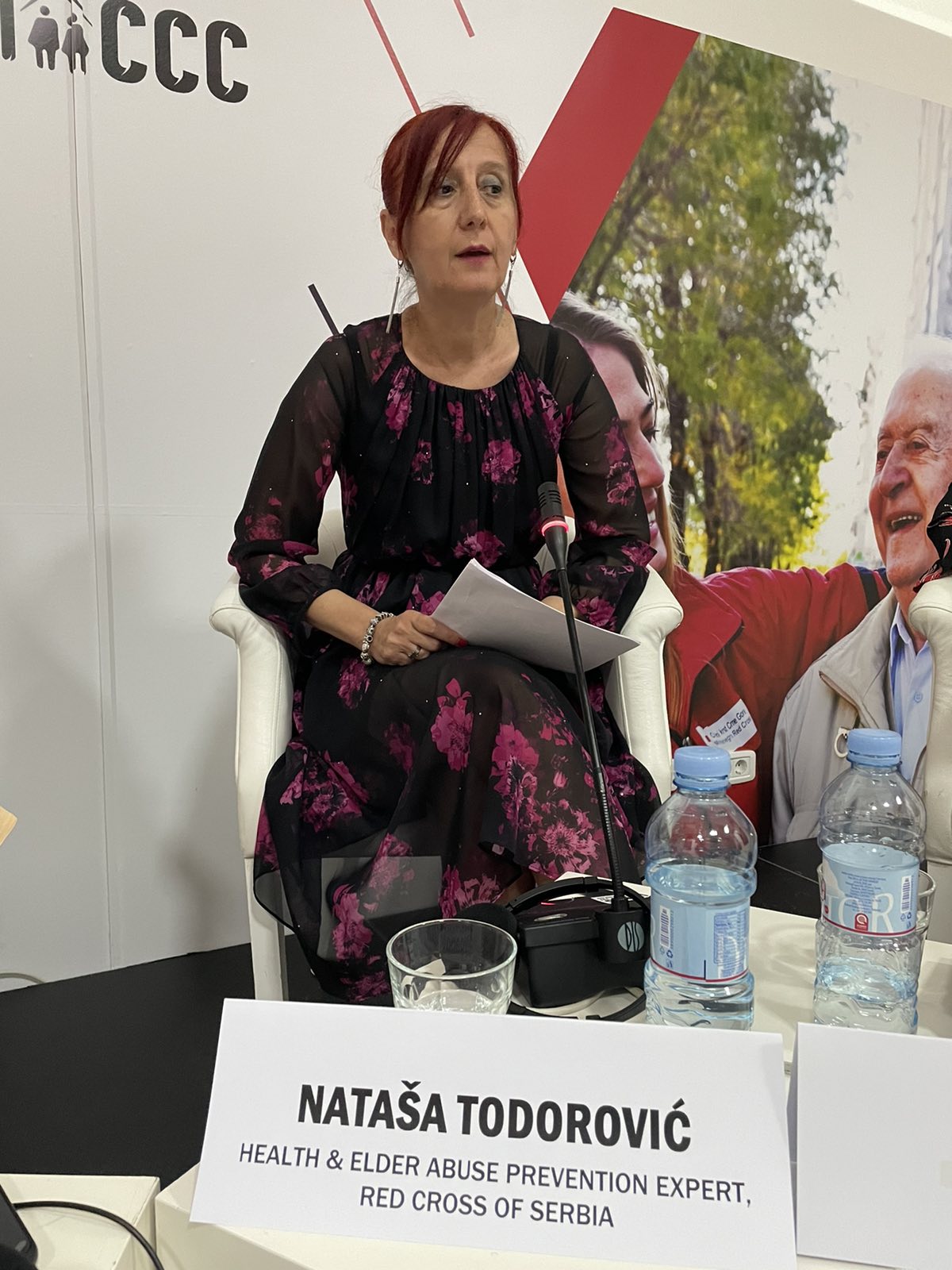
The Red Cross of Montenegro organized a conference “Empowering informal carers in Montenegro, Serbia and Austria - Approaches and good practices for informal carers” in its facility in Sutomore, between 31 May and 1 June 2022, within the project “Addressing and preventing care needs through innovative community care Centres (I-CCC)”. This conference is part of the activities on empowering informal care providers, which the Red Cross of Serbia has been implementing for several years through various projects and initiatives, and representatives of the Red Cross of Serbia, Natasa Todorovic and Milutin Vracevic, participated.
The conference participants included Jelena Dubak, Secretary General of the Red Cross of Montenegro, Slobodan Mandic, Director of the Directorate for Health Care Control in the Ministry of Health, Biljana Vucetic, Coordinator of the Directorate for Social Welfare and Child Protection, Dana-Carmen Bachmann, Head of Department long-term care at the European Commission and Dr. Luis Arturtoniz, representative of Alzheimer's Disease International.
In the expert part of the conference, a panel discussion “Challenges and innovations in supporting informal carers in Austria, Serbia and Montenegro” was held with the participation of Jelena Sofranac, director of the Home for Older Persons “Podgorica”, Monika Wild, long-term care expert from Austria and Natasa Todorovic, expert on health and prevention of violence against older persons, from the Red Cross of Serbia. Presenting experiences from different socio-cultural contexts, the panellists discussed numerous barriers and problems of informal carers. Natasa Todorovic spoke about the decreasing number of informal caregivers that society will have at its disposal as the decades go by, due to migration from rural to urban areas but also the migration of professional carers and the trend of demographic change around the world, about the risks to their mental health and ways to protect it, about the great importance of communication skills, which they must master, especially when it comes to giving support to persons with dementia. She also mentioned changes in social norms that must be accompanied by changes in the system itself, access to the labour market for informal carers and greater formal support for them.
In the course of the conference, Milutin Vračević moderated the discussion on advocacy for informal caregivers and the tools needed for advocacy. The context in which informal care is provided today was presented, as were the projections for the coming decades and advocacy needs, and the innovative approaches to advocacy that should ensure the position of informal carers, better care and lower risk of elder abuse in the future.
The project “Addressing and preventing care needs through innovative community care Centres (I-CCC)” is funded by the European Union and the Austrian Development Agency.
